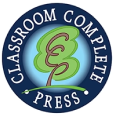Learning loss over the summer break is a long-running struggle many teachers face. When students return to the classroom in the fall, much of what they learned the previous year is lost. This is due to the halt of regular practice, resulting in new skills and knowledge fading over time. To combat this, teachers have enlisted the help of parents to encourage kids to take part in summer reading, math games and hands-on science activities.
Here is a list of strategies and activities ideal to combat learning loss this summer break.
1. Create a summer reading program. Reading skills are less likely to be lost over the summer break than math and science as the chances of kids using their reading skills during everyday activities is more likely. However, this doesn’t mean you can’t be proactive in maintaining the reading skills gained during the school year. The simplest way to encourage reading over the summer break is to assign a novel and comprehension activities for students to complete. Designate specific chapter sections to be completed each week, along with a culminating activity to be done the week before returning to school in the fall. Check out our variety of Novel Study Guides for ready-made comprehension activities.
2. Review math concepts. Send an infographic-style sheet of this year’s math concepts for students to review while at home. Include short review questions for them to practice throughout the summer break. Encourage healthy competition between friends with Math Olympics worksheets.
3. Plan a family game night. Promote an understanding of numbers with board games that force families to count. Games like Monopoly, Pay Day, Sequence Numbers, Cribbage, and Yahtzee are all great options. You can even turn this into a language arts exercise with games like Mad Libs, Scattergories and Taboo. Create your own life science board games by matching populations, classifying animals, and creating new trivial pursuit cards.
4. Visit a museum, zoo or nature site. Plan your summer vacation around a popular museum, zoo or national park. Learn about science, history and art. Play a game of Zoo Bingo by crossing off each animal you see. When you get a line, you win! Plan a day trip to a local nature site. Conduct a scavenger hunt to find local plants and animals. Look for members of a food chain in your yard, local park or forest. Find one producer, one first consumer, one second consumer, and one decomposer, and draw them on a food chain graphic organizer.
5. Enroll in STEAM-based summer camps. Lots of kids go to summer camps over the break. A STEAM-based camp will encourage students to not only maintain the science skills they learned over the school year, but gain new knowledge as well. If there’s no camps nearby, create your own with a variety of hands-on science experiments that involve nature, such as building and studying a terrarium.
With these ideas, and so many others, students will be able to combat learning loss over the summer break and be better prepared for a return to the classroom in the fall.

